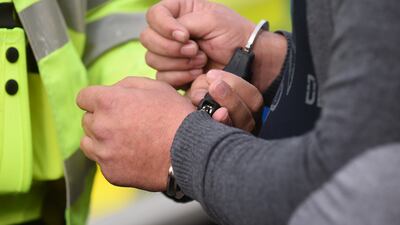Defendants from minority ethnic backgrounds are “significantly” more likely to be charged for a comparable offence than white British people in England and Wales, a study has found.
A programme was launched by the Crown Prosecution Service to identify, understand and tackle “disproportionality” in charging decisions.
The University of Leeds was commissioned to examine almost 195,000 cases, analysing age, sex, ethnicity and crime type to look for evidence of disproportionate decisions that led to a charge, caution or no further action.
“The study found that there is evidence of disproportionality in the outcomes of legal decision making, with defendants from minority ethnic backgrounds significantly more likely to be charged for a comparable offence than white British defendants," said the CPS.
Figures showed that suspects of mixed white and black Caribbean heritage had the highest charge rate, 81.3 per cent, making them almost 12 per cent more likely to be charged than white British suspects who have the lowest rate, 69.6 per cent.
Suspects with mixed white and black African heritage have the second highest charge rate, 79.5 per cent, followed by white and Asian suspects, 78.4 per cent.
The data for suspects with non-mixed heritage showed Caribbean people had the highest charge rate, 77.5 per cent, making them almost 8 per cent more likely to be charged than white British suspects.
As a result of these findings, the CPS has created an independent Disproportionality Advisory Group to oversee a programme of more research, in particular to identify what factors are causing the disparity and what action is needed to resolve it.
The group's chairwoman, Susie Uppal, said it would provide “independent and robust challenge” through the next stage of research “to bring about real and lasting change”.
“A fair justice system is a vital part of any democratic society and the decisions we make at the CPS have a profound impact on suspects, defendants, victims and the wider public," said Max Hill, KC, Director of Public Prosecutions.
"Our decisions must be fair, consistent, and transparent for justice to done.
“We undertook this research to ensure that in every case we uphold the highest standards of integrity.
"It is troubling that it has found evidence of unexplained disproportionality in the outcomes of our legal decision making.
“We cannot yet identify what is driving the disparities we have found, and therefore we must do further work as a matter of urgency.
"I am committed to taking whatever action is needed and am grateful for the scrutiny of our independent advisers as we prioritise this vital work.”
Grace Ononiwu, CPS director of legal services and inclusion champion, called the findings “concerning”.
“We need to understand and tackle the drivers of disproportionality as a top priority,” Ms Ononiwu said.
“While issues of disproportionality cut across the whole of the criminal justice system, and wider society, there are no excuses.
"If there are actions we can take to reduce disproportionality then we will do so, and we’ll continue to work closely with our partners to ensure that the justice system as a whole is transparent, fair and inclusive.”
Fiyaz Mughal, co-chair of the Community Accountability Forum, said disproportionality seriously affects people and communities.
“Only by ensuring every voice is heard can justice be delivered,” Mr Mughal said.


